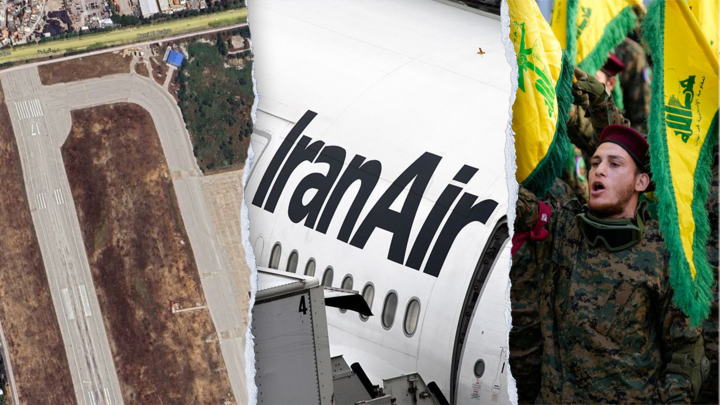An explosive report by the Iranian dissident group PMOI/MEK alleges that Iran Air, Iran’s domestic airline, is providing support to Hezbollah, a U.S.-designated terror organization. According to the report, flights between Iran and Beirut Airport in Lebanon were used to transfer Hezbollah personnel for training courses and smuggle food, light, and medium weapons into Lebanon. Advanced light weapons, including anti-aircraft missiles, were allegedly delivered from Iran to Lebanon through runway 17, which the report claims belongs exclusively to Hezbollah. The report also accuses Iran Air of moving MOIS agents and equipment for terrorist activities outside of Iran.
Jason Brodsky, policy director for United Against Nuclear Iran, explained that Iran Air has a history of enabling the procurement of Western products, particularly dual-use goods, for use by the IRGC and Iran’s Defense Ministry. The report claims that Iran Air uses carry-on luggage in European airport stopovers to transfer these goods, avoiding further security checks. The MEK also stated that public information and intelligence from inside the IRGC and MOIS show that the MOIS has used Iran Air to move agents and equipment for terrorist activities. Asadullah Assadi, a terrorist diplomat and former MOIS station chief for Europe, was sentenced to 20 years in a Belgian prison for a plot to bomb an NCRI gathering in 2018. Assadi was released in a prisoner exchange in 2023.
The MEK report also highlighted Iran Air’s historic ties to terror, including transporting terrorists involved in an assassination in Geneva in 1990. The Treasury and State Departments sanctioned Iran Air in September based on its shipments of equipment and aircraft parts to Russia. Following U.S. sanctions, France, the UK, and Germany announced they would cancel bilateral air services agreements with Iran and work towards imposing sanctions on Iran Air. Ali Safavi, a member of the NCRI’s Foreign Affairs Committee, emphasized that Iran Air has been strategically utilized by the Iranian regime for domestic suppression and international terrorism.
The MEK noted that IRGC-Qods Force Commander Brigadier General Rostam Ghasemi appointed IRGC Brigadier General Shamseddin Farzadipour as the head of Iran Air in 2022. Farzadipour’s previous role was as the IRCH Air and Space Force aviation operations commander, indicating alignment with the IRGC’s objectives. Safavi called for prohibiting Iran Air from flying to major European hubs and designating the IRGC as a terror organization. Safavi urged the international community to reinstate sanctions against Iran and take action against Iran Air’s alleged support for terrorism. The Iranian mission to the UN denied the allegations, stating that Iran provides humanitarian aid to Lebanon and has expressed readiness to provide medical aid.
Overall, the MEK report alleges that Iran Air has been involved in supporting Hezbollah by facilitating the transfer of personnel, weapons, and agents for terrorist activities. The report also highlights Iran Air’s history of enabling the procurement of goods for the IRGC and MOIS, as well as its ties to past terrorist activities. The sanctions imposed on Iran Air by the U.S. and the decisions by European countries to cancel agreements and consider sanctions signal growing international concern over Iran Air’s alleged involvement in terrorism. The MEK and others are calling for further action to hold Iran Air and the Iranian regime accountable for their support of terrorism.













